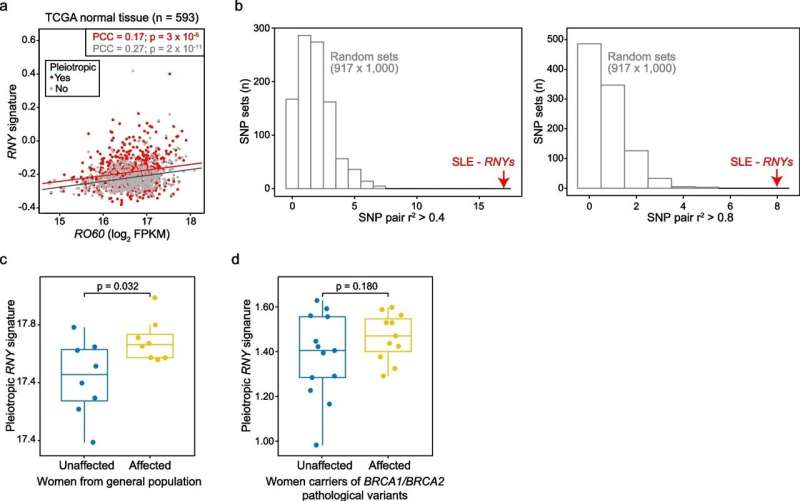This article has been reviewed according to Science X's editorial process and policies. Editors have highlighted the following attributes while ensuring the content's credibility:
fact-checked
proofread
Alterations in the blood immune system found to increase cancer risk

An international team of researchers has identified the genetic basis and biological processes that influence cancer risk related to alterations in the number of immune cells present in the blood. This is a significant advance in understanding how the immune system can prevent the appearance of tumors.
The study, led by researchers from the Institut Català d'Oncologia (ICO), the Bellvitge Biomedical Research Institute (IDIBELL), the Germans Trias i Pujol Research Institute (IGTP), and the Translational Genomics Research Institute in the United States, has been published in the journal Genome Medicine and represents a significant step towards a better understanding of how alterations in the immune system facilitate the onset of cancer.
The immune system is responsible for maintaining the integrity and function of the body by continuously protecting us from exogenous attacks, such as viruses and endogenous attacks, in this case, cancer. This gives it a central role in inhibiting carcinogenesis, and its disruption may increase the risk of cancer by allowing malignant cells to proliferate.
However, the genetic basis influencing this regulation was generally unknown until now. This research now opens up new avenues for the development of specific and targeted prevention methods through therapies or interventions that modulate the immune response.
The project results point to more than 1,000 genes that simultaneously influence the immune system and cancer risk. These genes that affect more than one feature of the body, called pleiotropic genes, are often associated with the control of hematological system development and telomere regulation.
On the one hand, the alteration of hematopoiesis associated with cancer is mainly linked to abnormalities of myeloid cells, such as neutrophils or eosinophils. In this regard, the study has identified a specific protective role of eosinophils against the development of common cancers in the general population.
Telomeres are structures located at the ends of chromosomes that protect genetic material and wear out over time. Therefore, telomere alterations are associated with different pathologies or conditions, including cancer and aging.
In addition, the study has identified possible blood biomarkers of cancer risk and tumor initiation. These predictive markers are based on small non-coding RNA sequences that can alter the function of the immune system.
Miquel Àngel Pujana, head of the ProCURE Programme at ICO, also an IDIBELL researcher, said, "This study opens new avenues for improving cancer prevention in a personalized way, and the findings could lead to more specific preventive strategies tailored to individual genetic characteristics."
Dr. Rafael de Cid, the co-lead author of the study and head of the GCAT|Genomes for Life-IGTP project, highlights the complexity and interconnectedness of the architecture of the human genome: "Genetic research focused on simple, measurable biological traits may be a way to understand the genetic basis of more complex traits, such as cancer."
In summary, the authors underline the importance of progress in genetic research to improve cancer prevention and treatment towards a personalization of these interventions.
More information: Miguel Angel Pardo-Cea et al, Biological basis of extensive pleiotropy between blood traits and cancer risk, Genome Medicine (2024). DOI: 10.1186/s13073-024-01294-8



















